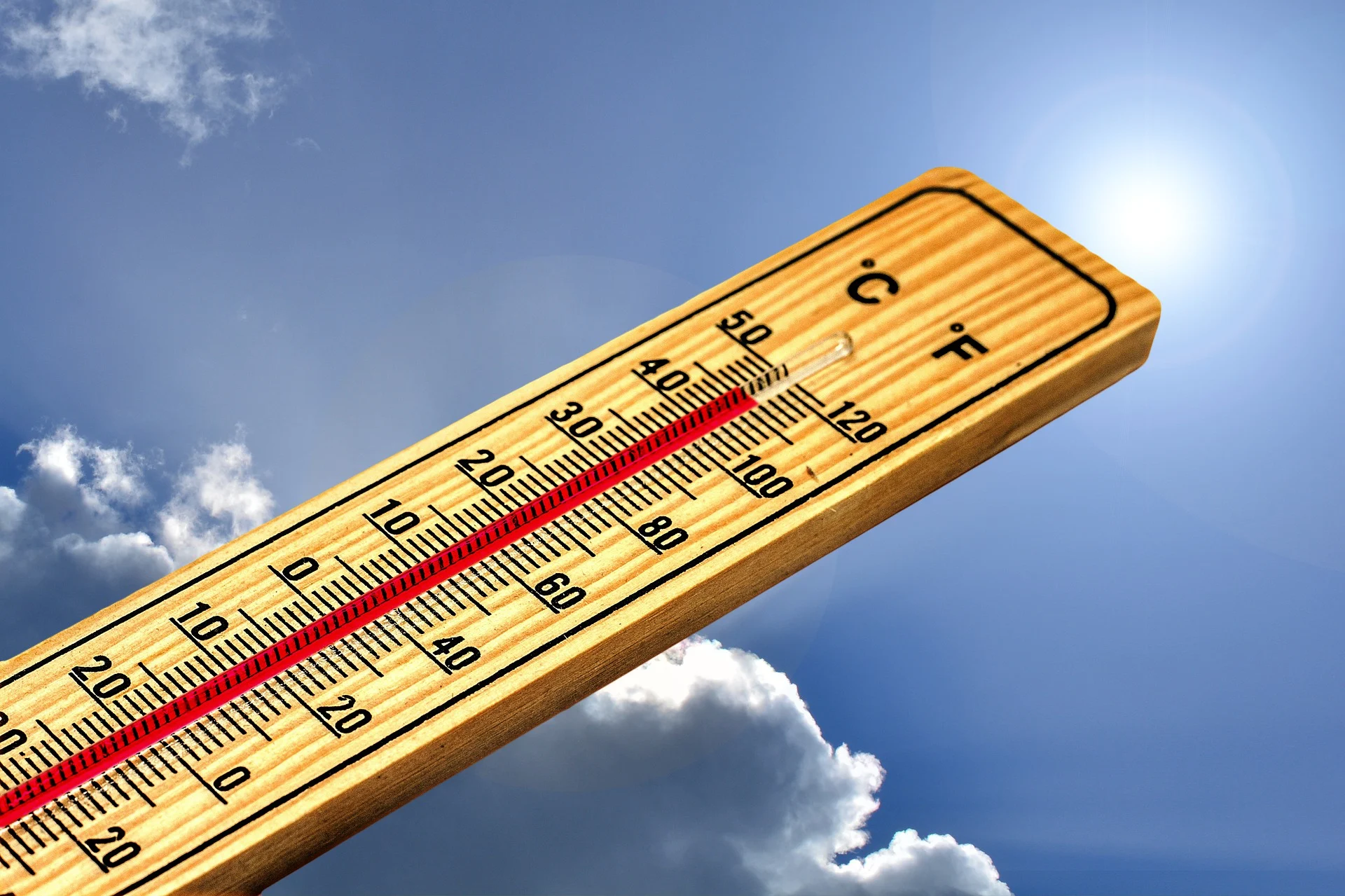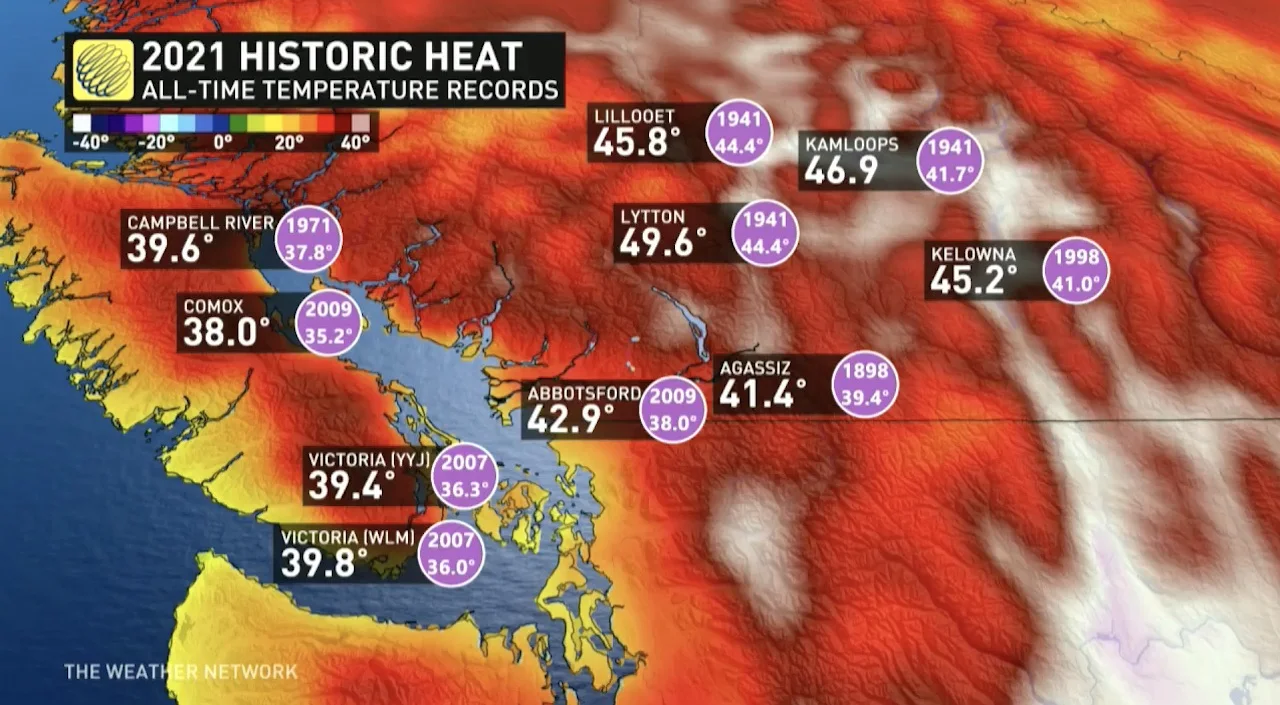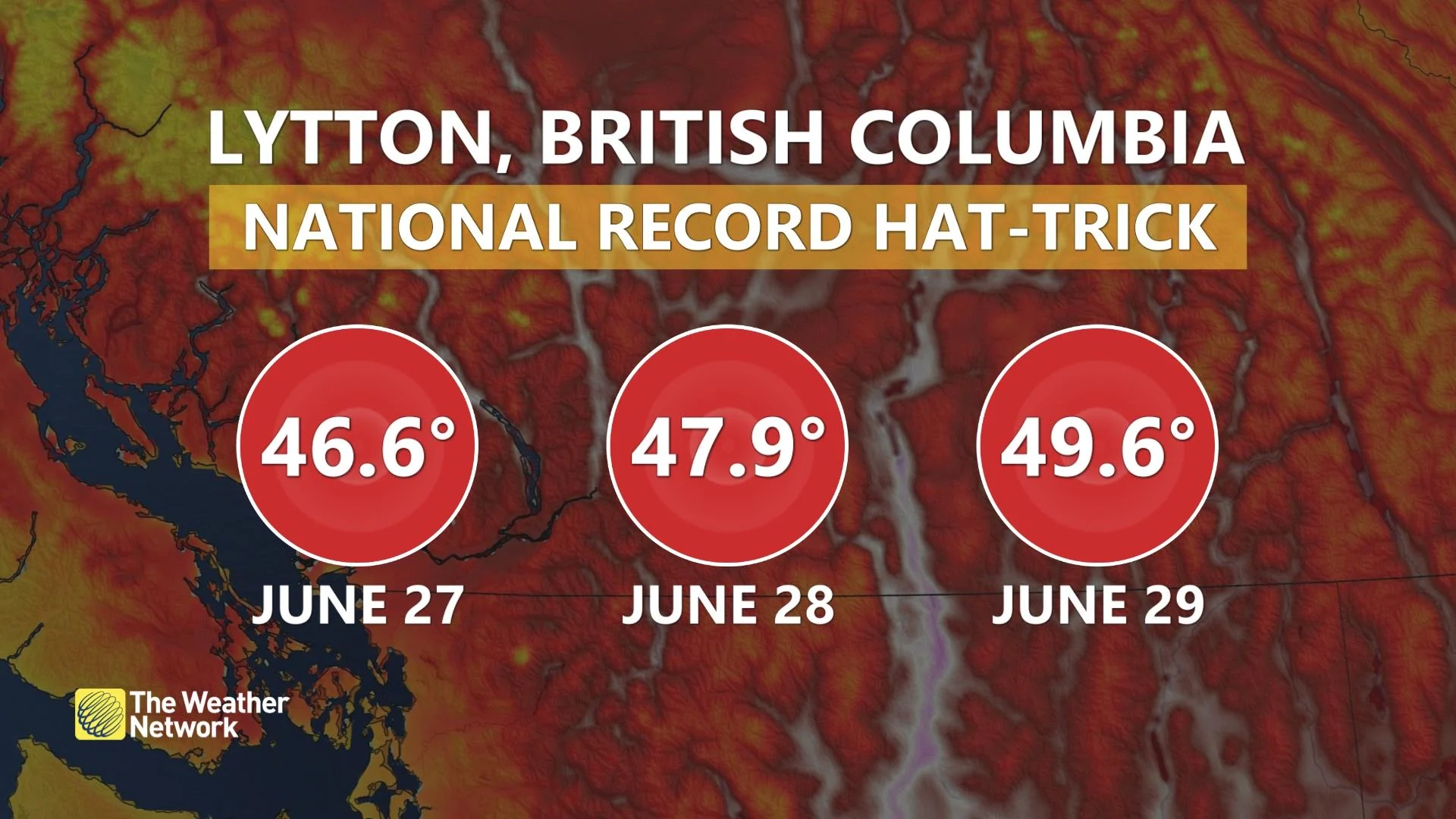
Nearly 600 lives claimed by B.C.'s historic, record-breaking heat wave
The extreme heat that scorched B.C. this past summer not only broke records and contributed to a historic wildfire season, it also led to the deaths of at least 595 people, according to BC Coroners Service.
Close to 600 people perished as a result of B.C.'s unprecedented and record-setting heat this past summer.
That's according to a new government report that outlines at least 595 heat-related deaths were reported to the BC Coroners Service between June 18 and Aug. 12, 2021. In that period of time, the largest number of deaths occurred from June 25 and July 1 during a heat dome event, resulting in numerous temperature records being set throughout the province.
RELATED: Rise in sudden deaths reported as blistering B.C. heat wave continues
"The BC Coroners Service is committed to gathering as much information as possible about each of these deaths to inform future, evidence-based prevention efforts," said Lisa Lapointe, B.C.'s chief coroner, in a press release.
"I extend my sincere condolences to all of those who lost a loved one as a result of last summers unprecedented heat dome. By identifying patterns and factors in the tragic deaths that occurred unexpectedly last summer, our province will be in a better position to prevent future similar tragedies."

A death is considered to be heat-related when the localized environment or body temperature is keeping with hyperthermia or there is no direct temperature at the time of it, but there is evidence such as circumstantial, scene environment or medical history to support heat playing a significant causal effect on the fatality, according to the BC Coroner's Service.
JUNE 25-JULY 1 SAW AT LEAST 526 DEATHS
Among the data included in the analysis, the most deaths happened between June 25-July 1 (at least 526). Some of the fatalities recorded in the weeks following that period would have been due to injuries sustained during it. The highest numbers of deaths that were observed during on June 29 (231) and June 28 (131).
The BC Coroner's Service also said nearly three-quarters of the deaths recorded between June 25 and July 1 occurred in either the Fraser (273) or Vancouver Coastal (120) health authority regions. The provincewide death rate during this period was 10.1 per 100,000 residents.

Individuals aged 70 or older accounted for 69 per cent of deaths, none of them children. Of those that were injured, 96 per cent occurred in a residential setting.
WHAT LED TO THE SEVERITY OF THE HEAT WAVE
Tyler Hamilton, a meteorologist at The Weather Network, talked about the "weather recipe" to create an unprecedented heat dome environment. There was a strong Pacific jet stream, which triggered a rapidly developing low-pressure system in the Gulf of Alaska.
The low then amplified the pattern and built a ridge of high pressure in the atmosphere "never before seen" across B.C., he said.
"Our weather maps obviously focused on the surface, but a heat dome builds and builds. It's an event that occurs day after day. Those overnight temperatures build, and in turn, that feedback effect continues, raising the temperature the following day," said Hamilton.
"That's how we can get temperatures to 42°C into the Fraser Valley and 50°C in the Interior."
VIDEO: WHY DID RECORD HEAT HAPPEN IN LYTTON, B.C.?
The BC Coroners Service anticipates to finish individual investigations of each heat-related death by early 2022. Once complete, the service will gather a death review panel with subject-matter experts who will create recommendations intended to prevent similar deaths in the future. The findings are expected to be publicly released in late spring 2022.
"While we expect the findings of the death review will significantly contribute to efforts to increase public safety, we must take steps to prepare for future extreme weather events now," Lapointe said.
"Having a plan to regularly check in with loved ones who live alone, being aware of cooler and air-conditioned areas in your neighbourhood, and heeding early warnings about extreme weather are simple steps that will help ensure we are all properly prepared and safe.”
Follow Nathan Howes on Twitter.
